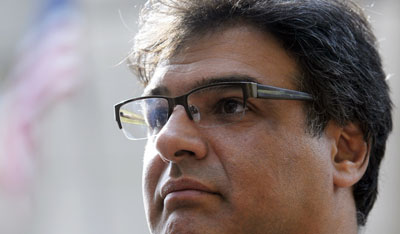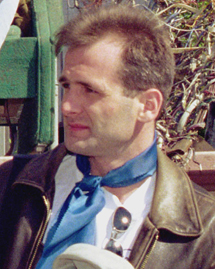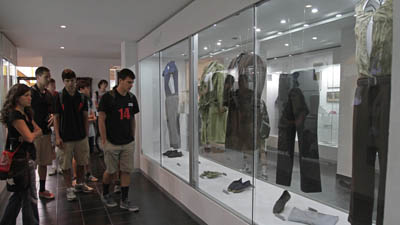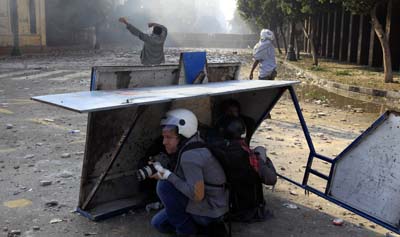Frank Smyth/Senior Adviser for Journalist Security
Frank Smyth is CPJ’s senior adviser for journalist security. He has reported on armed conflicts, organized crime, and human rights from nations including El Salvador, Guatemala, Colombia, Cuba, Rwanda, Uganda, Eritrea, Ethiopia, Sudan, Jordan, and Iraq. Follow him on Twitter @JournoSecurity.

CIA case highlights need for digital security
Few cases better underscore the need for digital security among journalists. On Tuesday, ex-CIA officer John Kiriakou pleaded guilty to leaking the identity of another CIA operative to Matthew Cole, a journalist formerly with an ABC News investigative team. In a 2007 interview with ABC, Kiriakou became the first CIA official to confirm that waterboarding…

Finding common cause from first online journalist murder
The first online journalist killed for his work disappeared one night 12 years ago in the Ukraine. Georgy Gongadze, 31, left a colleague’s house to return home to his wife and two young children. He never arrived. Seven weeks later, a farmer, a few hours’ drive away, discovered the journalist’s headless corpse. Gongadze edited the website Ukrainska…

In Cryptocat, lessons for technologists and journalists
Alhamdulillah! Finally, a technologist designed a security tool that everyone could use. A Lebanese-born, Montreal-based computer scientist, college student, and activist named Nadim Kobeissi had developed a cryptography tool, Cryptocat, for the Internet that seemed as easy to use as Facebook Chat but was presumably far more secure.

Solidarity, a key to security, eludes Salvadoran press
No other journalists are remembered quite like this. Visitors looking through the glass display at the Monsignor Romero Center & Martyrs Museum in San Salvador see the pajamas and other clothes that three Jesuit university priests were wearing when they were shot down by automatic rifle fire. A series of clear containers are filled with…

Should J-School grads just get up and go overseas?
The guidance is hardly clear. At a Columbia University event last week pegged to the release of the new CPJ Journalist Security Guide, one journalism student said he and his classmates are getting contradictory advice. Many J-school professors, he said, have encouraged him and others to just get up, go overseas, and try to make…
To quote Marie Colvin: ‘What is bravery, and what bravado?’
Not since the worst period of the Iraq war, or in the Balkans the decade before, have so many storied journalists been killed or seriously injured in such a short period of time. Inevitably, the spate of deaths leaves many journalists asking questions about whether and how much they are willing to risk their own…
Can’t an aspiring war correspondent get some fresh advice?
My role has changed. Over the past decade, I handled both Washington advocacy and journalist security issues for CPJ. Now I focus exclusively on the latter. Today’s entry is the first in what will be a regular look at the dangers journalists face worldwide and the resources available to address those risks. How to Avoid…